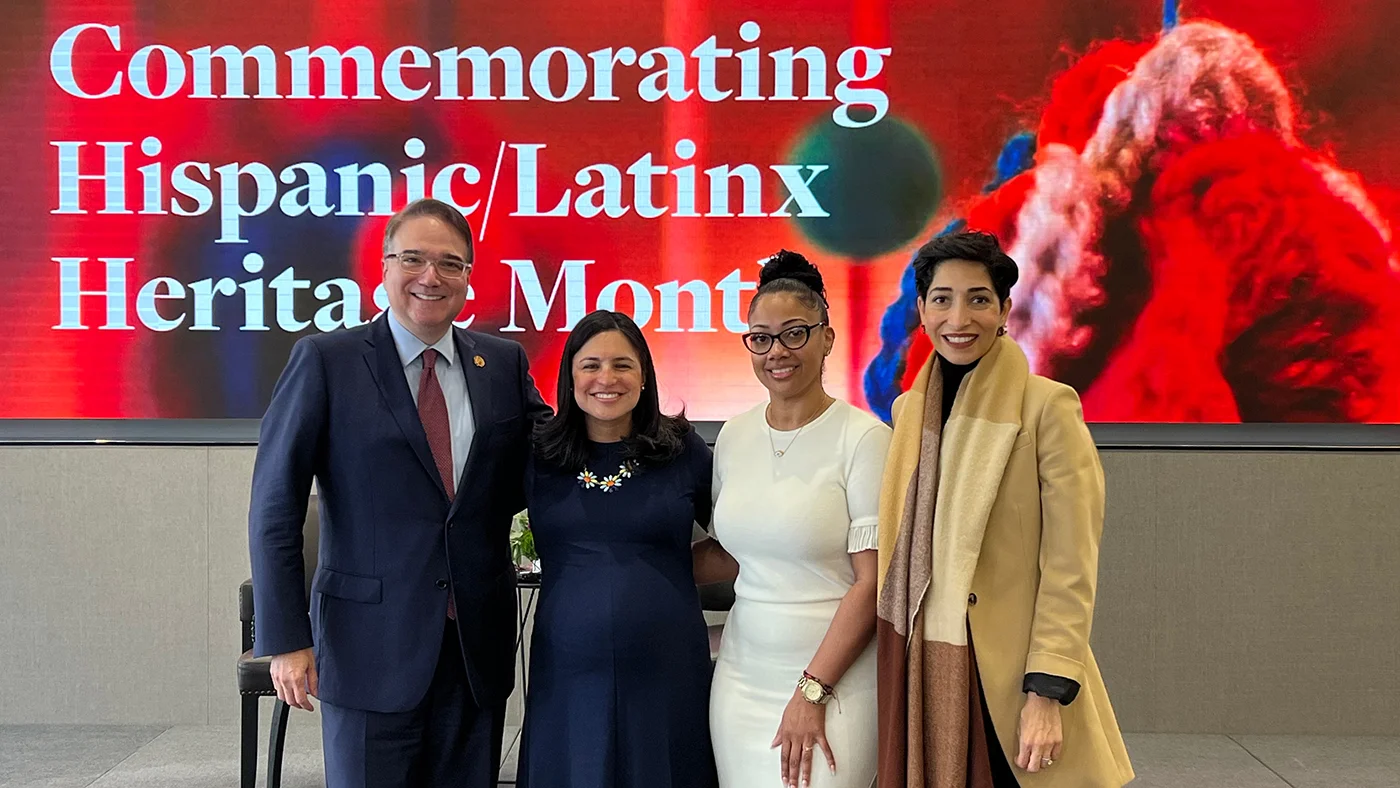Seattle University School of Law Dean Anthony E. Varona headlined two recent Hispanic Heritage Month events at international law firms — the Hispanic Heritage Month Fireside Chat at White & Case LLP's New York City office, and Dorsey & Whitney’s Zoom presentation, “Diversity and Inclusion: Importance of Hispanic/Latinx Lawyers and Leaders.”
In an interview with White & Case attorney Gabriela Baca, his former student at American University Washington College of Law, Varona discussed the progress in increasing Latinx and Hispanic representation in the legal community and the challenges still to overcome. He also talked about his own upbringing and career journey, immigrating with his parents from Cuba to Newark, New Jersey, as a small child.
“We lived the American Dream thanks to my parents' immigration,” Varona said, noting that his parents ran a bodega in Newark that became a community hub for immigrants. In fact, it was through translating for the immigrant community as a child that Varona first found a love for advocating for those in need.
Varona also called attention to the lack of diversity in the legal profession.
“The Hispanic/Latinx community only makes up roughly 5% of practicing lawyers when we comprise one in five Americans. Out of 193 law schools in the U.S., only nine have Latinx and/or Hispanic deans,” Varona said. “In order to better represent our incredibly diverse clientele, we need to promote diversity in law practices and among attorneys, and we need to value our diversity. This diversity makes us stronger lawyers."
He gave this advice to current and prospective Latinx and Hispanic law students.
"We are our best selves when we are transparent, when we are vulnerable, and when we are honest to ourselves and the world around us about who we are and where we have come from,” he said. “We all have a certain degree of imposter syndrome. But please understand that you aren't just welcome in the legal profession, we need you. We need Hispanic lawyers and Latinx lawyers and women lawyers and LGBTQ lawyers and African American lawyers and immigrant lawyers. That's because the legal profession is woefully and undemocratically underrepresented.”
In his presentation for Dorsey & Whitney, a Minneapolis-based international law firm, Varona highlighted the need for more Hispanic and Latinx lawyers, law firm partners, law school deans, law professors, and law students.
“The law, to be most legitimate as a pillar of democracy, needs to serve the needs of its constituents, and in order to serve the needs of its constituents, it must understand and be sensitive to those needs,” he said.
He pointed out that having more legal professionals who can speak Spanish can increase access to legal help for immigrants and Americans of Hispanic and Latinx descent.
“We need lawyers who are not only culturally cognizant and competent, but also can speak the primary language of the clients … Hispanic and Latinx lawyers also can overcome the trust barriers that many Hispanic and Latinx clients have about working with lawyers and the legal system,” he said. “Having access to Hispanic and Latinx lawyers can help break down many of those barriers.”

